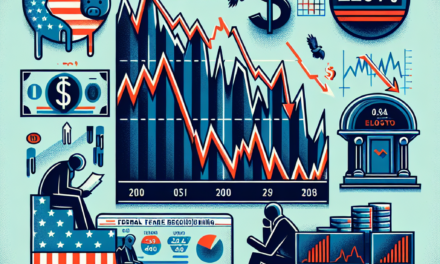“Uniper Sells Gönyű Power Plant to Veolia: A New Era in Sustainable Energy Management.”
Introduction
Uniper has successfully finalized the sale of its Gönyű Power Plant in Hungary to Veolia, marking a significant step in the company’s strategic realignment and commitment to sustainability. This transaction aligns with Uniper’s efforts to divest non-core assets and focus on its core operations, while Veolia aims to enhance its energy portfolio and contribute to the transition towards more sustainable energy solutions. The sale reflects the growing trend of collaboration between energy and environmental service providers in addressing the challenges of energy production and environmental stewardship.
Uniper’s Strategic Shift: The Sale of Gönyű Power Plant
Uniper, a prominent player in the energy sector, has recently finalized the sale of its Gönyű power plant in Hungary to Veolia, a global leader in optimized resource management. This strategic move marks a significant shift in Uniper’s operational focus and aligns with its broader objectives of enhancing sustainability and transitioning towards a more environmentally friendly energy portfolio. The decision to divest the Gönyű facility is not merely a financial transaction; it reflects Uniper’s commitment to adapting to the evolving energy landscape, characterized by increasing regulatory pressures and a growing emphasis on renewable energy sources.
The Gönyű power plant, which has been a part of Uniper’s operations for several years, has played a crucial role in the local energy market. However, as the global energy sector undergoes transformative changes, driven by climate change concerns and technological advancements, Uniper has recognized the need to reassess its asset portfolio. By selling the plant to Veolia, Uniper is not only streamlining its operations but also positioning itself to invest more heavily in renewable energy projects and innovative technologies that align with its long-term sustainability goals.
Veolia’s acquisition of the Gönyű power plant is expected to bring about a new chapter for the facility. Known for its expertise in waste management and resource recovery, Veolia is well-equipped to enhance the operational efficiency of the plant while integrating sustainable practices. This transition is anticipated to benefit the local community by ensuring a reliable energy supply while also minimizing environmental impacts. Veolia’s commitment to sustainability aligns with Uniper’s vision, making this sale a strategic fit for both companies.
Moreover, this transaction underscores a broader trend within the energy sector, where traditional energy companies are increasingly divesting from fossil fuel-based assets in favor of cleaner alternatives. As governments worldwide implement stricter regulations aimed at reducing carbon emissions, companies like Uniper are compelled to adapt their business models. The sale of the Gönyű power plant is a clear indication of Uniper’s proactive approach to these challenges, as it seeks to pivot towards a more sustainable future.
In addition to the environmental implications, the sale also has significant economic ramifications. By divesting from the Gönyű facility, Uniper can redirect its resources towards investments in renewable energy projects, such as wind and solar power. This shift not only enhances the company’s competitive edge in a rapidly changing market but also contributes to job creation and economic growth in the regions where these new projects will be developed. As Uniper focuses on expanding its renewable energy portfolio, it is likely to foster innovation and collaboration within the industry, further driving the transition towards a low-carbon economy.
In conclusion, Uniper’s sale of the Gönyű power plant to Veolia represents a pivotal moment in the company’s strategic evolution. This decision reflects a broader commitment to sustainability and a recognition of the need to adapt to the changing energy landscape. As both companies move forward, the collaboration is expected to yield positive outcomes for the environment, the local community, and the energy sector as a whole. By embracing this strategic shift, Uniper is not only positioning itself for future success but also contributing to the global effort to combat climate change and promote sustainable energy practices.
Veolia’s Acquisition: Implications for the Hungarian Energy Market
The recent acquisition of the Gönyű Power Plant in Hungary by Veolia marks a significant development in the country’s energy landscape. This transaction, finalized by Uniper, not only reflects the ongoing shifts within the energy sector but also underscores the growing importance of sustainable practices in energy production. As Veolia, a global leader in optimized resource management, takes ownership of the facility, the implications for the Hungarian energy market are multifaceted and noteworthy.
Firstly, the acquisition signals a strategic move towards enhancing the sustainability of energy production in Hungary. Veolia’s commitment to environmental stewardship aligns with the European Union’s broader goals of reducing carbon emissions and transitioning to renewable energy sources. By integrating the Gönyű Power Plant into its portfolio, Veolia is poised to implement innovative technologies and practices that could significantly lower the plant’s environmental footprint. This transition is particularly relevant in the context of Hungary’s energy policy, which increasingly emphasizes the need for cleaner energy solutions.
Moreover, the sale of the Gönyű Power Plant represents a shift in ownership that could lead to increased investment in the local energy infrastructure. Veolia’s expertise in managing energy resources efficiently may result in enhanced operational performance at the plant. This could not only improve energy output but also optimize resource utilization, thereby contributing to a more resilient energy system in Hungary. As the country grapples with energy security challenges, such improvements are essential for ensuring a stable and reliable energy supply.
In addition to operational enhancements, Veolia’s acquisition may foster greater competition within the Hungarian energy market. The entry of a major player like Veolia could stimulate innovation and drive other energy producers to adopt more sustainable practices. This competitive dynamic is crucial for encouraging the development of new technologies and solutions that can address the pressing challenges of climate change and energy efficiency. As companies strive to differentiate themselves in a rapidly evolving market, consumers may benefit from improved services and potentially lower energy costs.
Furthermore, the acquisition aligns with Hungary’s strategic objectives to diversify its energy sources. By integrating Veolia’s expertise in waste-to-energy and other sustainable practices, the Gönyű Power Plant could play a pivotal role in the country’s efforts to reduce reliance on fossil fuels. This diversification is particularly important as Hungary seeks to enhance its energy independence and resilience against external shocks, such as fluctuations in global energy prices.
As Veolia embarks on this new chapter with the Gönyű Power Plant, the implications for the workforce and local communities must also be considered. The transition to more sustainable operations may necessitate retraining and upskilling of employees, ensuring that the workforce is equipped to meet the demands of a changing energy landscape. Additionally, local communities could benefit from increased job opportunities and economic development as Veolia invests in the plant’s modernization and efficiency improvements.
In conclusion, Veolia’s acquisition of the Gönyű Power Plant is a pivotal moment for the Hungarian energy market, with far-reaching implications for sustainability, competition, and energy diversification. As the country navigates the complexities of energy transition, the integration of Veolia’s innovative practices and commitment to resource management could serve as a catalyst for positive change. Ultimately, this acquisition not only enhances the operational capabilities of the Gönyű Power Plant but also positions Hungary on a path toward a more sustainable and resilient energy future.
Environmental Impact of the Gönyű Power Plant Sale
The recent sale of the Gönyű Power Plant in Hungary from Uniper to Veolia marks a significant shift in the operational landscape of energy production in the region, particularly concerning environmental considerations. This transaction not only reflects the evolving dynamics of energy markets but also underscores the increasing importance of sustainable practices in the power generation sector. As Veolia takes over the facility, the implications for environmental management and ecological responsibility become paramount.
Historically, the Gönyű Power Plant has been a critical player in Hungary’s energy supply, primarily relying on fossil fuels for its operations. This reliance has raised concerns regarding greenhouse gas emissions and other pollutants that contribute to climate change and local air quality degradation. However, with Veolia’s commitment to sustainability and environmental stewardship, there is a promising opportunity for the plant to transition towards more eco-friendly practices. Veolia, known for its expertise in waste management and resource recovery, is likely to implement innovative technologies and strategies aimed at reducing the plant’s carbon footprint.
Moreover, the sale aligns with Hungary’s broader energy transition goals, which emphasize the need for cleaner energy sources and reduced reliance on fossil fuels. As the country seeks to meet its climate targets, the transformation of the Gönyű Power Plant under Veolia’s management could serve as a model for other facilities in the region. By integrating renewable energy sources and enhancing energy efficiency, the plant has the potential to significantly lower its environmental impact while contributing to Hungary’s energy security.
In addition to reducing emissions, the sale also opens avenues for improved waste management practices at the Gönyű facility. Veolia’s expertise in resource recovery can facilitate the implementation of circular economy principles, where waste products are minimized, and materials are reused or recycled. This approach not only mitigates environmental harm but also promotes economic efficiency, creating a win-win scenario for both the company and the community.
Furthermore, the transition of ownership may lead to increased community engagement and transparency regarding environmental practices. Veolia’s reputation for prioritizing stakeholder involvement could foster a collaborative relationship with local residents and authorities, ensuring that their concerns are addressed and that the plant operates in a manner that is socially responsible. This engagement is crucial, as public perception plays a significant role in the success of energy projects, particularly those with a history of environmental challenges.
As the sale of the Gönyű Power Plant progresses, it is essential to monitor the implementation of Veolia’s environmental initiatives closely. The effectiveness of these measures will not only determine the plant’s operational efficiency but also its long-term sustainability. By prioritizing environmental impact assessments and adhering to stringent regulatory standards, Veolia can set a precedent for responsible energy production in Hungary.
In conclusion, the sale of the Gönyű Power Plant to Veolia represents a pivotal moment in Hungary’s energy landscape, with significant implications for environmental management. As the new owner, Veolia has the opportunity to transform the facility into a model of sustainability, aligning with national energy goals and addressing community concerns. The potential for reduced emissions, improved waste management, and enhanced stakeholder engagement underscores the importance of this transition, paving the way for a more sustainable future in energy production.
Future of Renewable Energy in Hungary Post-Sale
The recent sale of the Gönyű Power Plant in Hungary from Uniper to Veolia marks a significant shift in the landscape of energy production in the region, particularly in the context of Hungary’s commitment to renewable energy. As the country navigates its energy transition, this transaction is poised to influence the future of renewable energy initiatives and policies. With Veolia’s expertise in environmental services and sustainable energy solutions, the acquisition is expected to catalyze advancements in renewable energy technologies and practices within Hungary.
In recent years, Hungary has made strides toward diversifying its energy portfolio, with a growing emphasis on renewable sources such as solar, wind, and biomass. The government has set ambitious targets to increase the share of renewables in its energy mix, aiming for a significant reduction in greenhouse gas emissions by 2030. The sale of the Gönyű Power Plant, which has traditionally relied on fossil fuels, represents a pivotal moment in this transition. By transferring ownership to a company that prioritizes sustainability, Hungary is signaling its intent to move away from conventional energy sources and embrace a greener future.
Moreover, Veolia’s acquisition aligns with the European Union’s broader goals of achieving climate neutrality by 2050. As Hungary seeks to comply with EU directives and regulations regarding energy production and environmental protection, the integration of Veolia’s innovative practices could enhance the country’s ability to meet these targets. The company’s commitment to circular economy principles and resource efficiency is likely to foster the development of renewable energy projects that not only reduce reliance on fossil fuels but also promote sustainable resource management.
Transitioning to renewable energy is not without its challenges, and Hungary must address several key issues to ensure a successful shift. One of the primary concerns is the need for substantial investment in infrastructure to support the integration of renewable energy sources into the national grid. As Veolia takes the helm at the Gönyű Power Plant, it will be crucial for the company to collaborate with local authorities and stakeholders to identify opportunities for upgrading existing facilities and developing new projects that harness renewable energy potential.
In addition to infrastructure, public awareness and acceptance of renewable energy technologies play a vital role in the transition process. As Hungary moves forward, educational initiatives and community engagement will be essential in fostering a culture that embraces sustainable energy solutions. Veolia’s experience in community outreach and environmental education can be instrumental in building public support for renewable energy initiatives, thereby facilitating smoother implementation of new projects.
Furthermore, the sale of the Gönyű Power Plant could serve as a model for future energy transitions in Hungary and beyond. By demonstrating the viability of transitioning from fossil fuel-based power generation to renewable energy solutions, this transaction may inspire other companies and investors to explore similar opportunities. As the energy landscape evolves, the collaboration between public and private sectors will be critical in driving innovation and ensuring that Hungary remains on track to achieve its renewable energy goals.
In conclusion, the sale of the Gönyű Power Plant to Veolia represents a significant step toward a more sustainable energy future for Hungary. With a focus on renewable energy development, infrastructure investment, and community engagement, this transition has the potential to reshape the country’s energy landscape, aligning it with both national and European objectives for a greener, more sustainable future. As Hungary embraces this new chapter, the collaboration between stakeholders will be essential in realizing the full potential of renewable energy in the region.
Economic Effects of Uniper’s Decision on Local Communities
The recent decision by Uniper to finalize the sale of the Gönyű Power Plant in Hungary to Veolia marks a significant shift in the local energy landscape, with potential economic effects that warrant careful consideration. This transaction not only reflects the evolving dynamics of the energy sector but also has implications for the communities surrounding the power plant. As Uniper transitions away from traditional energy production, the local economy may experience both challenges and opportunities.
Firstly, the sale of the Gönyű Power Plant could lead to immediate changes in employment within the region. Uniper has been a key employer in the area, providing jobs to a substantial number of residents. With Veolia taking over operations, there may be uncertainties regarding job security for existing employees. While Veolia is known for its commitment to sustainable practices and may seek to retain a skilled workforce, the potential for restructuring cannot be overlooked. This transition period may create anxiety among workers and their families, as they navigate the implications of new management and operational strategies.
Moreover, the economic impact of this sale extends beyond employment. The Gönyű Power Plant has historically contributed to the local tax base, providing essential funding for public services such as education, infrastructure, and healthcare. As ownership changes hands, it is crucial to assess how Veolia’s operational model will influence local tax revenues. If Veolia prioritizes investment in renewable energy and sustainability initiatives, it may lead to a reallocation of resources that could benefit the community in the long run. However, if the focus shifts away from local engagement, there could be a decline in financial support for community programs, which would adversely affect residents.
In addition to employment and tax implications, the sale may also influence local businesses. The presence of a major power plant often stimulates economic activity in surrounding areas, as local suppliers and service providers benefit from contracts and partnerships. As Veolia implements its operational strategies, local businesses may find new opportunities for collaboration, particularly if the company emphasizes sustainable practices and seeks to source materials locally. Conversely, if Veolia opts for a more centralized approach, local suppliers may face challenges in maintaining their contracts, potentially leading to a ripple effect on the local economy.
Furthermore, the transition to a new operator may also impact the community’s perception of energy production and environmental stewardship. Veolia’s reputation for prioritizing sustainability could foster a more positive relationship between the power plant and local residents. This shift may encourage community engagement in environmental initiatives, leading to increased awareness and participation in sustainability efforts. As residents become more involved, they may advocate for policies that promote renewable energy and environmental protection, ultimately benefiting the community as a whole.
In conclusion, Uniper’s decision to sell the Gönyű Power Plant to Veolia presents a complex interplay of economic effects on local communities. While there are potential challenges related to employment and local business dynamics, there are also opportunities for growth and collaboration in the realm of sustainability. As the community navigates this transition, it will be essential for stakeholders to engage in open dialogue, ensuring that the economic benefits of this sale are maximized while addressing the concerns of residents. Ultimately, the future of the Gönyű Power Plant under Veolia’s stewardship could redefine the local economic landscape, paving the way for a more sustainable and resilient community.
Regulatory Considerations in the Sale of Gönyű Power Plant
The sale of the Gönyű Power Plant in Hungary by Uniper to Veolia marks a significant development in the energy sector, particularly in the context of regulatory considerations that accompany such transactions. As the energy landscape evolves, regulatory frameworks play a crucial role in ensuring that sales and acquisitions align with national and international standards. In this instance, the transaction necessitated a thorough examination of various regulatory requirements, which were pivotal in facilitating a smooth transition of ownership.
Firstly, the sale was subject to scrutiny by Hungarian regulatory authorities, who are tasked with overseeing energy market operations to ensure fair competition and consumer protection. The Hungarian Energy and Public Utility Regulatory Authority (HEA) was instrumental in evaluating the implications of the sale on the local energy market. This evaluation included an assessment of how the transfer of ownership would affect energy supply stability, pricing, and the overall competitive landscape. By conducting a comprehensive review, the HEA aimed to mitigate any potential risks that could arise from the change in ownership, thereby safeguarding the interests of consumers and maintaining market integrity.
Moreover, the transaction also had to comply with European Union regulations, which govern mergers and acquisitions within member states. The European Commission’s antitrust laws are designed to prevent monopolistic practices and ensure that competition remains robust across the EU. In this context, the sale of the Gönyű Power Plant was analyzed to determine whether it would significantly impede effective competition in the energy market. The assessment involved a detailed examination of Veolia’s existing operations and market share, as well as the potential impact of the acquisition on other market players. By adhering to these regulations, both Uniper and Veolia demonstrated their commitment to fostering a competitive energy market in Hungary.
In addition to competition laws, environmental regulations also played a critical role in the sale process. The Gönyű Power Plant, like many energy facilities, is subject to stringent environmental standards aimed at reducing emissions and promoting sustainable practices. As part of the sale agreement, Veolia is expected to uphold these environmental commitments, ensuring that the plant operates in compliance with both national and EU environmental directives. This aspect of the transaction underscores the growing importance of sustainability in the energy sector, as regulatory bodies increasingly prioritize environmental considerations in their assessments.
Furthermore, the sale process involved consultations with various stakeholders, including local communities and environmental groups. Engaging with these stakeholders is essential for addressing any concerns related to the sale and its potential impact on the local environment and economy. By fostering open communication, Uniper and Veolia aimed to build trust and transparency, which are vital for the successful integration of the power plant into Veolia’s portfolio.
In conclusion, the sale of the Gönyű Power Plant to Veolia exemplifies the intricate web of regulatory considerations that govern such transactions. From competition laws to environmental regulations, each aspect plays a pivotal role in shaping the outcome of the sale. By navigating these regulatory landscapes effectively, both companies not only ensure compliance but also contribute to a more sustainable and competitive energy market in Hungary. As the energy sector continues to evolve, the importance of adhering to regulatory frameworks will remain paramount, guiding future transactions and fostering a responsible approach to energy production and consumption.
Uniper and Veolia: A New Era in Energy Collaboration
Uniper has recently finalized the sale of its Gönyű power plant in Hungary to Veolia, marking a significant milestone in the evolving landscape of energy collaboration. This transaction not only underscores the strategic realignment of Uniper’s portfolio but also highlights Veolia’s commitment to sustainable energy solutions. As both companies navigate the complexities of the energy market, this partnership is poised to foster innovation and enhance operational efficiencies.
The Gönyű power plant, which has been a vital component of Hungary’s energy infrastructure, will now operate under Veolia’s stewardship. This transition is particularly noteworthy as it aligns with Veolia’s broader mission to promote environmental sustainability and resource management. By integrating the plant into its operations, Veolia aims to leverage its expertise in waste management and energy recovery, thereby optimizing the plant’s performance while minimizing its environmental footprint. This synergy between Uniper and Veolia exemplifies a growing trend in the energy sector, where traditional energy companies are increasingly collaborating with firms specializing in sustainability.
Moreover, this sale reflects Uniper’s strategic shift towards focusing on its core competencies and enhancing its operational resilience. By divesting from assets that no longer align with its long-term vision, Uniper is positioning itself to invest more heavily in renewable energy sources and innovative technologies. This decision is particularly relevant in the context of global energy transitions, where the demand for cleaner and more sustainable energy solutions is rapidly increasing. Uniper’s move to streamline its operations is not only a response to market dynamics but also a proactive step towards achieving its sustainability goals.
As Veolia takes over the Gönyű power plant, it is expected to implement advanced technologies that will improve energy efficiency and reduce emissions. The company’s extensive experience in managing energy resources will be instrumental in enhancing the plant’s operational capabilities. Furthermore, Veolia’s commitment to circular economy principles will likely lead to innovative practices that promote resource recovery and waste reduction. This approach not only benefits the environment but also contributes to the economic viability of the energy sector.
In addition to the operational benefits, this collaboration between Uniper and Veolia is indicative of a broader shift in the energy landscape, where partnerships are becoming increasingly essential. As companies face mounting pressure to meet regulatory requirements and societal expectations regarding sustainability, collaborative efforts are emerging as a viable strategy for achieving these objectives. By working together, Uniper and Veolia can share knowledge, resources, and best practices, ultimately driving progress in the energy sector.
Looking ahead, the sale of the Gönyű power plant represents a new chapter for both Uniper and Veolia. For Uniper, it signifies a commitment to refining its focus on sustainable energy solutions, while for Veolia, it presents an opportunity to expand its footprint in the energy market. As these two companies embark on this collaborative journey, they are not only reshaping their own futures but also contributing to the broader goal of a more sustainable energy landscape. The implications of this partnership extend beyond their individual operations, potentially influencing industry standards and practices in the years to come. In conclusion, the finalization of this sale marks the beginning of a promising era in energy collaboration, one that prioritizes sustainability and innovation in an ever-evolving market.
Q&A
1. **What company finalized the sale of the Gönyű Power Plant in Hungary?**
– Uniper.
2. **Who is the buyer of the Gönyű Power Plant?**
– Veolia.
3. **What type of facility is the Gönyű Power Plant?**
– It is a power generation facility.
4. **What is the significance of the sale for Uniper?**
– It is part of Uniper’s strategy to divest non-core assets.
5. **When was the sale of the Gönyű Power Plant finalized?**
– The specific date of finalization is not provided in the question.
6. **What is Veolia’s primary business focus?**
– Veolia focuses on water management, waste management, and energy services.
7. **How does this sale align with broader industry trends?**
– It reflects a shift towards sustainable energy solutions and asset optimization in the energy sector.
Conclusion
Uniper’s finalization of the sale of the Gönyű Power Plant in Hungary to Veolia marks a strategic shift in its asset portfolio, aligning with its focus on sustainability and energy transition. This transaction not only enhances Veolia’s capabilities in managing energy and environmental services but also reflects Uniper’s commitment to divesting non-core assets. The sale is expected to contribute positively to both companies’ operational efficiencies and environmental goals, reinforcing their positions in the evolving energy market.





